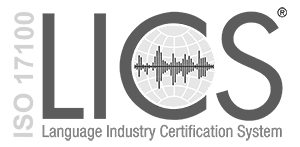In 2025, a market analysis with a single mistranslated phrase can wipe millions off a company's value.
For securities professionals operating across global markets, these aren't hypothetical scenarios—they're daily risks that demand attention.
With 87.5% of financial executives acknowledging language barriers as a significant limitation to market expansion, the securities industry stands at a technological crossroads. Traditional time-consuming translation methods are no longer sufficient in a sector where speed and precision can make or break deals worth billions.
Enter machine translation—not just as a tool, but as a strategic imperative for securities firms navigating today's global markets.
While A.I.-powered solutions promise to reduce translation costs by up to 50%, the real question isn't just about cost savings—it's about understanding how your firm can leverage these advances while protecting what matters most: accuracy, compliance, and client trust.
"In the securities industry, translation errors aren't just inconvenient—they're potentially catastrophic to your bottom line and reputation."
KEY TAKEAWAYS
- Machine translation removes language barriers, enabling seamless cross-border collaboration and capturing global opportunities.
- A.I. translation cuts costs, allowing firms to expand internationally without the need for expensive human translators.
- Instant translation of market reports and news provides traders with quick, actionable insights for faster decision-making.
- Advanced A.I. boosts translation accuracy, while human oversight ensures regulatory compliance and reduces risks.
Key Benefits of Machine Translation in Securities
1. Efficient Cross-Border Communication
In today’s interconnected global market, seamless communication is essential. Machine translation helps financial firms overcome language barriers, enabling rapid and accurate information exchange.
Multinational investment firms, for example, can effortlessly collaborate across borders, enhancing productivity and ensuring no opportunity is missed.
2. Cost Savings
Machine translation is a cost-effective solution for the securities sector. In the past, hiring human translators was necessary to handle large volumes of financial documents in different languages, resulting in significant expenses.
With machine translation, these costs are drastically reduced as A.I. algorithms can quickly translate vast amounts of data at a fraction of the cost. This makes it easier for smaller firms with limited resources to expand their operations globally without worrying about language barriers.
3. Real-Time Market Insights
The fast-paced nature of the securities market demands real-time information to make informed decisions. Machine translation allows for immediate translation of news, market reports, and social media content from different languages.
This provides traders with access to a wider pool of information, enabling them to quickly react to market trends and events that may impact their investments.
4. Enhanced Accuracy
The use of machine translation in securities has greatly improved the accuracy of translated documents. Advanced A.I.-powered tools continually learn from data inputs, delivering more precise translations than ever before. This ensures essential details are not lost, reducing the risks of miscommunication.
"Traditional translation methods are no longer sufficient in a sector where speed and precision can make or break deals worth billions."
Limitations of Machine Translation in Securities
1. Language Complexity
While machine translation has made significant advancements in dealing with complex languages like English and Chinese, it still struggles with highly technical financial terminology.
Securities documents often contain specialized vocabulary and complex sentence structures, making it challenging for machine translation to translate them accurately. For this reason, human oversight remains essential for high-stakes content.
2. Cultural Nuances
In the world of finance, a single word or phrase can have various meanings depending on the cultural context. Machine translation may not always capture these nuances, leading to misunderstandings and potential legal or financial implications.
3. Lack of Regulatory Understanding
Machine translation tools lack the ability to interpret and apply specific regulatory requirements for securities documents across jurisdictions. Financial regulations vary significantly between countries, and failure to comply with local standards can result in severe penalties. Human translators, familiar with regional regulatory frameworks, are essential to ensure that translations meet compliance requirements.
"While A.I. can process millions of words per minute, it's the human understanding of market nuance that prevents billion-dollar mistakes."
4. Struggles With Ambiguities
Securities documents often include ambiguous language that requires careful interpretation to understand the intended meaning. Machine translation struggles with such subtleties, potentially leading to errors or miscommunication.
5. Limited Adaptability to Changing Industry Standards
The securities industry is dynamic, with terminology, regulations, and best practices evolving frequently. Machine translation systems require regular updates and retraining to remain relevant, which can be time-consuming and costly.
These limitations highlight the need for a hybrid approach, combining the efficiency of machine translation with the expertise of human translators to deliver precise, compliant, and contextually accurate securities translations.
"Tomorrow's leading firms won't choose between A.I. and human expertise—they'll leverage both to dominate global markets."
Looking Ahead: The Future of Machine Translation in Securities
The future of machine translation in finance looks promising, with emerging trends driving even greater innovation, such as:
1. Real-Time Market Analysis
Access to timely information is vital for investors and traders. Machine translation allows for the swift conversion of financial reports, news, and market analyses, providing immediate insights.
A global investment firm, for example, can analyze foreign market data in real-time, enhancing their decision-making processes and allowing them to capitalize on opportunities as they arise.
2. Enhanced Decision-Making
A.I.-powered translation tools provide quick access to translated data, supporting informed decisions in investment, trading, and global trends.
By obtaining real-time insights into global financial activities, investors can better understand market dynamics and make decisions that align with their strategic goals.
"The real cost of translation isn't measured in dollars—it's measured in risk, compliance, and market opportunity."
3. Improved Compliance and Risk Management
Machine translation ensures accurate comprehension of regulatory changes, aiding financial firms in maintaining compliance across jurisdictions. It also supports risk management by enabling quicker responses to evolving regulations, thereby mitigating operational risks and reducing associated costs.
With continuous advancements, machine translation is set to become a cornerstone of the securities sector, empowering businesses to navigate global markets seamlessly.
By investing in and supporting its evolution, businesses can harness the full potential of this technology to achieve their strategic objectives.
"In securities, you're not just translating words—you're translating trust, compliance, and market intelligence."
In Conclusion
Machine translation solutions are transforming the way securities businesses operate on a global scale. By overcoming language barriers and facilitating efficient communication, these tools offer significant benefits to firms looking to expand their international reach.
While challenges remain, the ongoing advancements in A.I. and machine learning promise to further improve accuracy and effectiveness, solidifying the role of machine translation in the securities industry's future.
As such, it is crucial for companies to embrace this technology and incorporate it into their operations for continued growth and success.
Unlock Your Potential With Our A.I. Translation Solutions Tailored for the Securities Industry
Our advanced translation technology ensures your firm receives precise, compliant, and timely securities translations, empowering you to stay ahead in the market.














